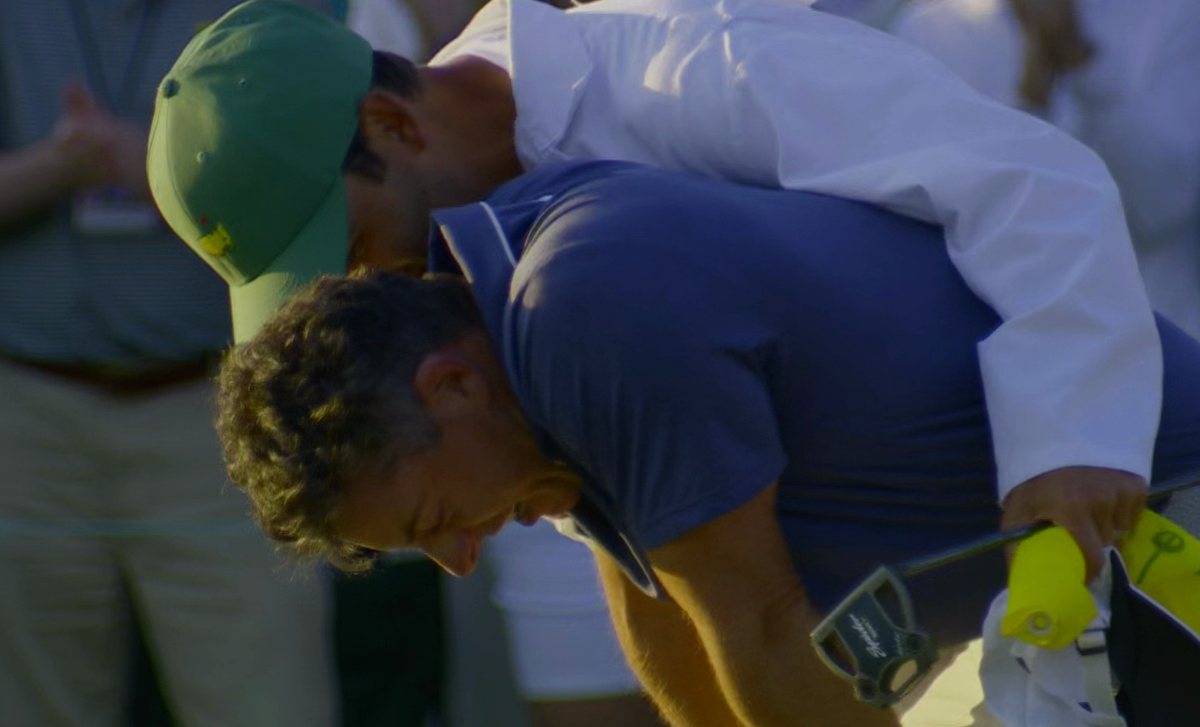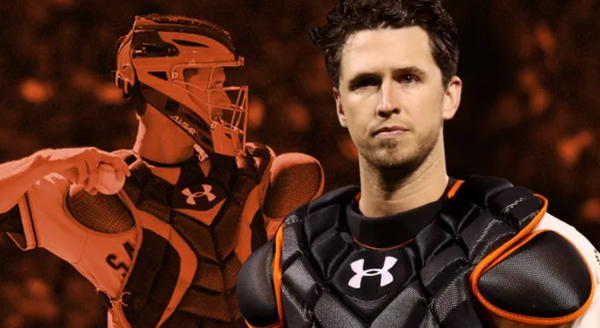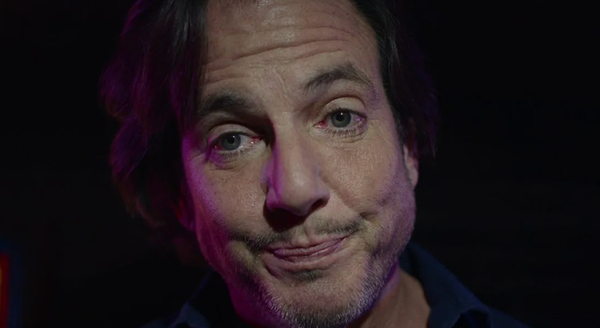Curse vs. timing
On Sunday, Rory McIlroy made his dream come true. All it took was a decade of pain.

Even if you've never watched a moment of golf before, it's likely that you've heard the name "Rory McIlroy." While he hasn't achieved the level of fame as Tiger Woods or Arnold Palmer (the latter gaining greater household-name status as a result of his delicious beverage and maybe some other high-profile references), he's one of the most successful and notable golfers of the past 20 years. But if you haven't watched a moment of golf before, you're probably not aware that McIlroy, for all his success, had become a running joke and/or pain point among sports fans for the past 10 years.
McIlroy, who earned his first PGA Tour win before turning 21, was one of only three golfers in history to win four majors before the age of 25 ... and then he never won another one. Until Sunday.
For his entire career, the Masters has seemed to be McIlroy's kryptonite – and in spectacular fashion. His first Masters, in 2011, saw him set a course record in the first round and enter the final day with a four-stroke lead before flaming out spectacularly in his last 18 holes. But later that year, he won the U.S. Open to claim his first major. The PGA Championship followed in 2012, and The Open and a second PGA Championship in 2014 left him one Masters win shy of completing his career Grand Slam – a feat only achieved by five other golfers in the modern format (and six if you count Bobby Jones, which you should). Tiger Woods was the most recent golfer to complete the career Grand Slam, in 2000. (Woods has since completed the feat an additional two times.)
Following 2014, it seemed a foregone conclusion that McIlroy would capture the green jacket that accompanies a Masters title at some point, but that was before he continued a string of follies and near-misses and flameouts that either rivaled or surpassed his 2011 collapse, depending on who you ask.
It's not that McIlroy didn't experience success in that time; he just didn't experience that success in a major, and particularly in the only major he needed to put him in the upper echelon of all-time greats. McIlroy is tied for 18th on the all-time leaderboard of most PGA Tour wins, and is currently the only one of those top 20 golfers to not already be enshrined in the World Golf Hall of Fame. (Although that honor will arrive soon enough.)
There were no reasons to weep for Rory McIlroy if you weren't directly related to him, but he made no secret of the fact that his missing Masters title ate at him, and golf fans everywhere began to watch his Masters appearances (and indeed, the final round of every major) through their fingers, knowing that no McIlroy lead was ever safe, and wondering what fresh hell of bad circumstances or rotten luck or just good old-fashioned yips would befall him this time around.
And so the sporting world suffered a series of palpitations on Sunday as McIlroy entered the day at 12 under par, with a two-stroke lead on his playing partner Bryson DeChambeau. The heartache started early, as McIlroy drove his first tee shot directly into a bunker and promptly double-bogeyed the first hole. He mixed in alternating stretches of brilliance and missteps, but took a one-stroke lead into the final hole, and needed to sink a routine mid-range putt for par to avoid going to a playoff with Justin Rose – another longtime PGA Tour favorite who was also seeking his first Masters win. And at age 44, Rose would be the oldest person to win the Masters for the first time.
McIlroy did not sink the putt.
Everyone's life contains disappointment, and tragedy, and pain, and – unless you are particularly blessed or privileged, or maybe just lucky – stretches where you just cannot attain the goal you've set for yourself, no matter how hard you try or how positive or focused your mindset.
You begin to wonder why the universe is against you. Why you even bother. You begin to think maybe you're cursed ... or maybe some alternate, less pessimistic reading of fate, or karma. Maybe it just isn't in the cards for you.
Or maybe it's just bad timing. Good things come to those who wait, they say. This too shall pass. Patience is a virtue. Good things are worth waiting for. Wait for the wheel, maybe.
But if your failures last for long enough – a decade, maybe – it doesn't matter of it's luck or fate or timing or a curse. If it's black magic or lack of talent or a poor mindset or bad juju. It begins to eat at you, and it will often threaten to consume you. Many times, it will succeed. You will lose yourself in it. You will disappear into the tsunami of the universe rising above you, and as it washes you away, you will think, Yes, I deserve this.
McIlroy went to his playoff hole. Rose hit a tremendous tee shot. McIlroy hit a better one. Rose had a phenomenal approach to stick the green. McIlroy drilled an even better one, and it rolled tantalizingly close to the pin. Rose missed his first putt, and McIlroy didn't. Just like that, McIlroy had won. The emotion hit him instantly, and he collapsed in joy and agony. The wheel had come around, and it was finally his time.
In his exit interview in the clubhouse, McIlroy repeatedly fought back tears as he spoke with the broadcasters prior to donning his green jacket. McIlroy, as noted, is one of the greatest golfers of all time, and one of the winningest. More than that, he is second only to Tiger Woods in career earnings on the PGA Tour, and they are the only two men to have made more than $100 million from tournament wins alone.
And yet, the humanizing nature of his decade of majors drought, and the public way in which his repeated Masters failures have eaten away at and weighed on him, created a moment on Sunday where everyone in the sporting world – probably even Justin Rose – was rooting for the guy. That's the power of failing in front of others. Everyone has failed, and everyone has fallen. We understood McIlroy's pain implicitly. And in some small way, his victory was a victory for everyone who had ever paid attention.
Sunday's Masters was everything wonderful and horrible about sports, and about life, distilled into the grimaces and exhales of one 5'9" man from Northern Ireland. I'm glad I got to watch it, even if it was often through my fingers.



